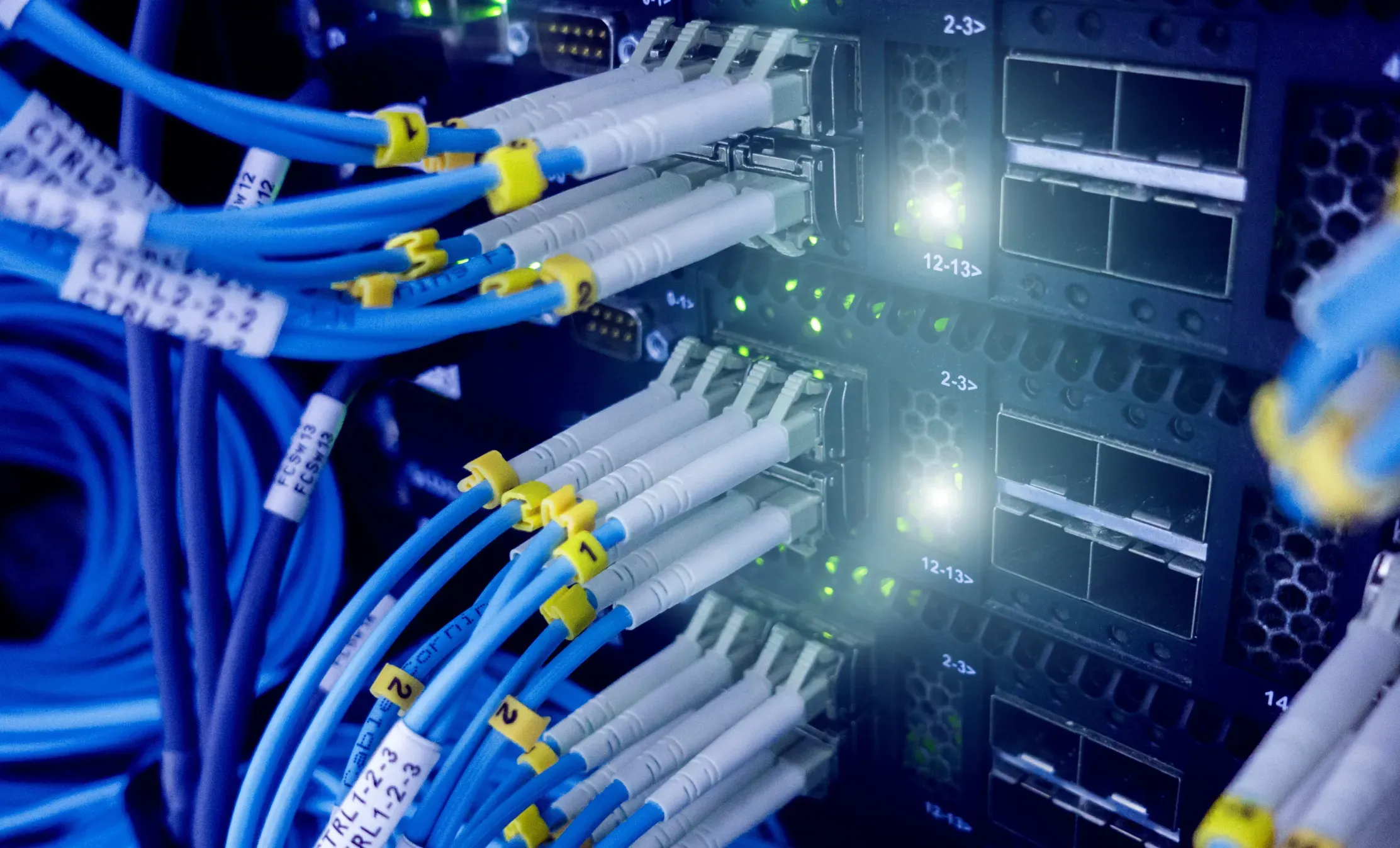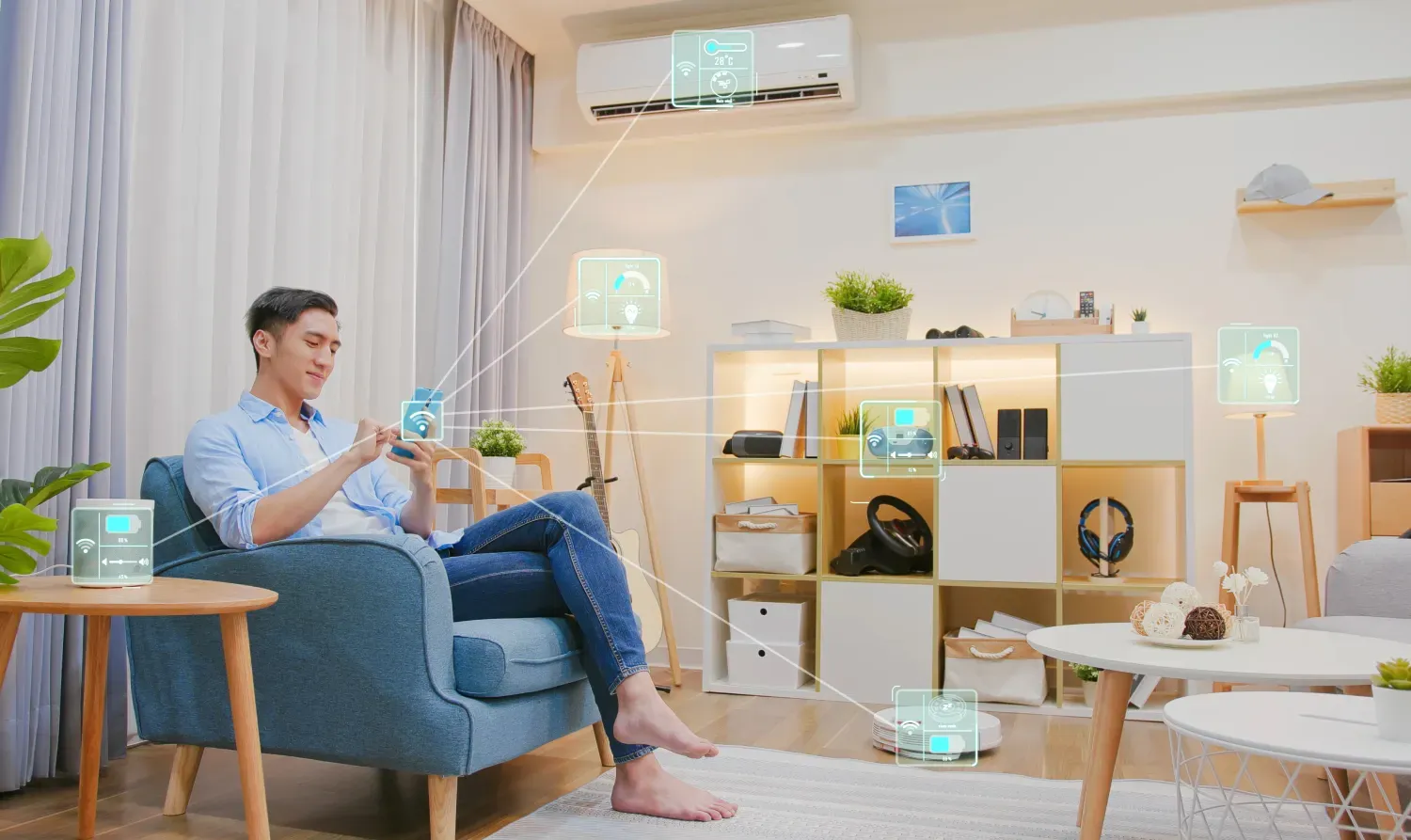What Is Fiber Optics and How Does It Work?
Tue Apr 22 2025
Imagine downloading a full-length movie in seconds or streaming your favorite 4K content with zero buffering. Sounds pretty great, right? That’s the main appeal of fiber optics. If you’ve ever wondered how fiber-optic internet works and why it’s a game-changer for smart homes and entertainment systems, this guide will explore all the details you need.

What Is Fiber Optics?
Fiber optics is a way of transmitting data using light instead of electricity. Traditional internet cables rely on copper wires, which send signals as electrical pulses. Fiber optics, on the other hand, uses ultra-thin glass or plastic fibers to carry data at the speed of light—literally.
Think of it like this: Imagine shouting across a canyon (copper wiring) versus using a laser pointer to send a message (fiber optics).
Which one gets there faster and clearer? That’s the difference between traditional internet and fiber.
How Does Fiber Optic Internet Work?
Instead of sending electrical signals, fiber-optic cables transmit data as pulses of light. These cables are made of tiny glass strands bundled together, with each strand thinner than a human hair. The light travels through the fiber by bouncing off the walls in a process called total internal reflection (fancy name, simple concept: the light stays inside the cable, going exactly where it needs to go).
Because fiber uses light instead of electricity, it’s not only faster but also more reliable and less prone to interference. That means better speeds, stronger connections, and no more lag when you’re trying to stream, game, or control your smart home.

Why Fiber Optics Is a Big Deal for Smart Homes
At Audio Video Experience, we specialize in smart home automation, home theater systems, lighting control, whole-home audio, and more—all of which rely on a fast, stable internet connection. Fiber optics takes all of these experiences to the next level. Here’s why:
1. Ultra-Fast Speeds for Streaming & Gaming
Fiber optics delivers symmetrical speeds if you’re into 4K movies, online gaming, or running multiple smart devices at once (meaning uploads and downloads are equally fast). That means no more buffering, lag, or waiting for your files to upload.
2. Perfect for Whole-Home Automation
Got a smart lighting system, motorized window treatments, or an advanced home security setup? Fiber optics ensures that all your devices stay connected without delays or dropouts, making your home automation system smoother than ever.
3. Crystal-Clear Video Calls and Surveillance Feeds
If you’ve ever experienced a pixelated video call or a choppy security camera feed, you know how frustrating slow internet can be. Fiber optics give you low-latency, high-definition connections so that your home surveillance system and video calls are always sharp and clear.
4. Reliable Connection, No Matter the Weather
Unlike traditional copper wiring, which can be affected by storms, heat, or electromagnetic interference, fiber optics is resistant to environmental disruptions. That means your internet stays stable even when the weather isn’t.
How Fiber Optic Internet Connects to Your Home
So, how does fiber actually get to your house? It typically happens in one of three ways:
-
FTTH (Fiber to the Home): The gold standard. The fiber-optic cable runs directly into your house, giving you the fastest and most reliable connection.
-
FTTC (Fiber to the Curb): The fiber cable reaches a box near your street, and the rest of the connection to your home is completed with traditional copper wiring.
-
FTTN (Fiber to the Node): The fiber reaches a central hub in your neighborhood, then uses existing wiring for the last stretch.
If you want the full benefit of fiber-optic speeds, FTTH is the best option, and it’s becoming more widely available across the country.
Does Fiber Optic Internet Need a Router?
Yes! While fiber optics replaces your old copper connection, you’ll still need a fiber-compatible router to distribute Wi-Fi throughout your home. Many modern routers are built to handle fiber speeds, but if you want a seamless experience, pairing fiber with a high-performance home network system (like the ones we install at Audio Video Experience) gives you the best possible connection.
Is Fiber Internet Worth It?
Absolutely. Whether you’re streaming movies, running a smart home, or relying on your internet for work and security, fiber optics delivers faster speeds, better reliability, and future-proof performance. It’s not just about getting online; it’s about making sure your home runs smoothly and efficiently.
Ready to Upgrade Your Smart Home Setup?
If you’re upgrading to fiber or want to optimize your home network, our team can design a system that maximizes your investment. At Audio Video Experience, we provide the best integration and home automation installation services in Nashville, TN, and the surrounding areas.
Ready to elevate your smart home or business technology? Contact us now to explore our premium offerings and schedule a consultation with our experts. We also offer outdoor sound systems in Nashville and gaming & home theater projectors to help you bring your vision to life.
Related Readings:
Let’s make your home smarter, faster, and future-ready. Call us today to learn more!
FAQ: Common Questions About Fiber Optics
1. What’s the difference between Wi-Fi and fiber optics?
Fiber optics is the physical infrastructure that delivers ultra-fast Internet. Wi-Fi is the wireless network inside your home that connects your devices to the internet.
2. Does fiber optics need a modem?
Not exactly. Fiber internet uses an optical network terminal (ONT) instead of a traditional modem. This device converts fiber-optic signals into something your router can understand.
3. Is fiber-optic internet more expensive than Wi-Fi?
Fiber internet service can be slightly more expensive upfront, but it often saves money in the long run by providing more reliable speeds, fewer outages, and lower maintenance costs.
4. Can fiber optics provide Wi-Fi?
Yes! While fiber delivers the internet connection, your router (paired with a strong home network system) creates the Wi-Fi that connects your devices.
5. Is fiber safer than traditional internet?
Yes! Fiber-optic cables are more secure than copper wiring because they don’t emit signals that can be intercepted. That makes them ideal for home security systems and surveillance setups.
